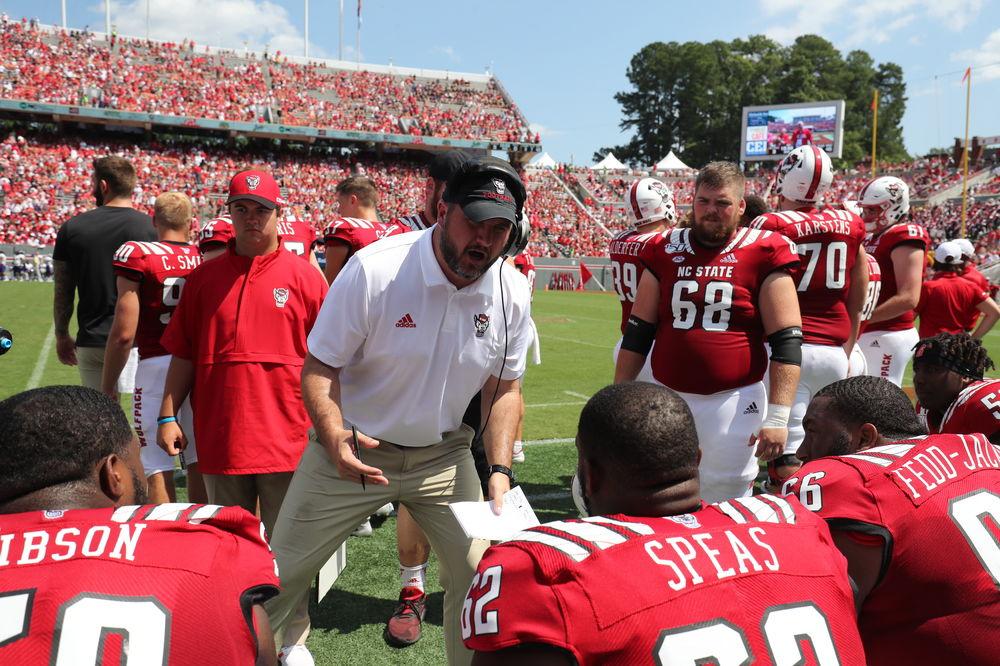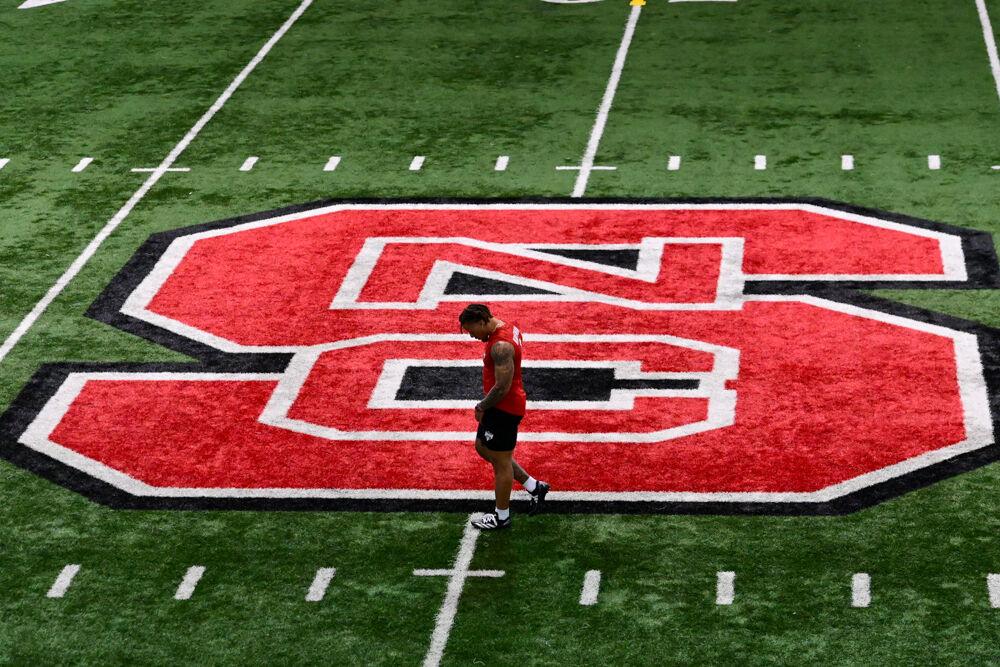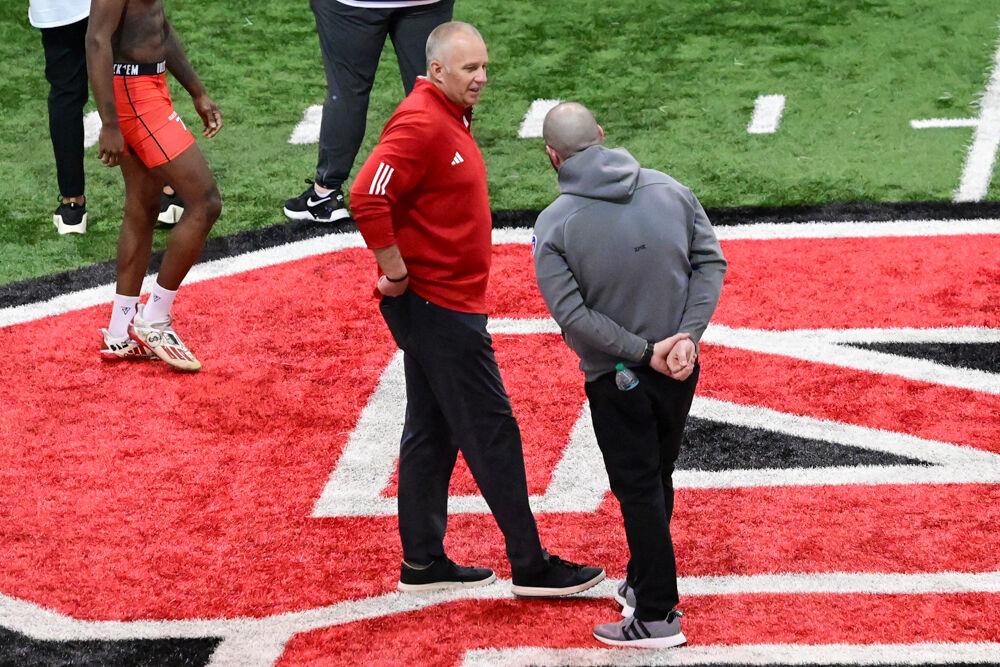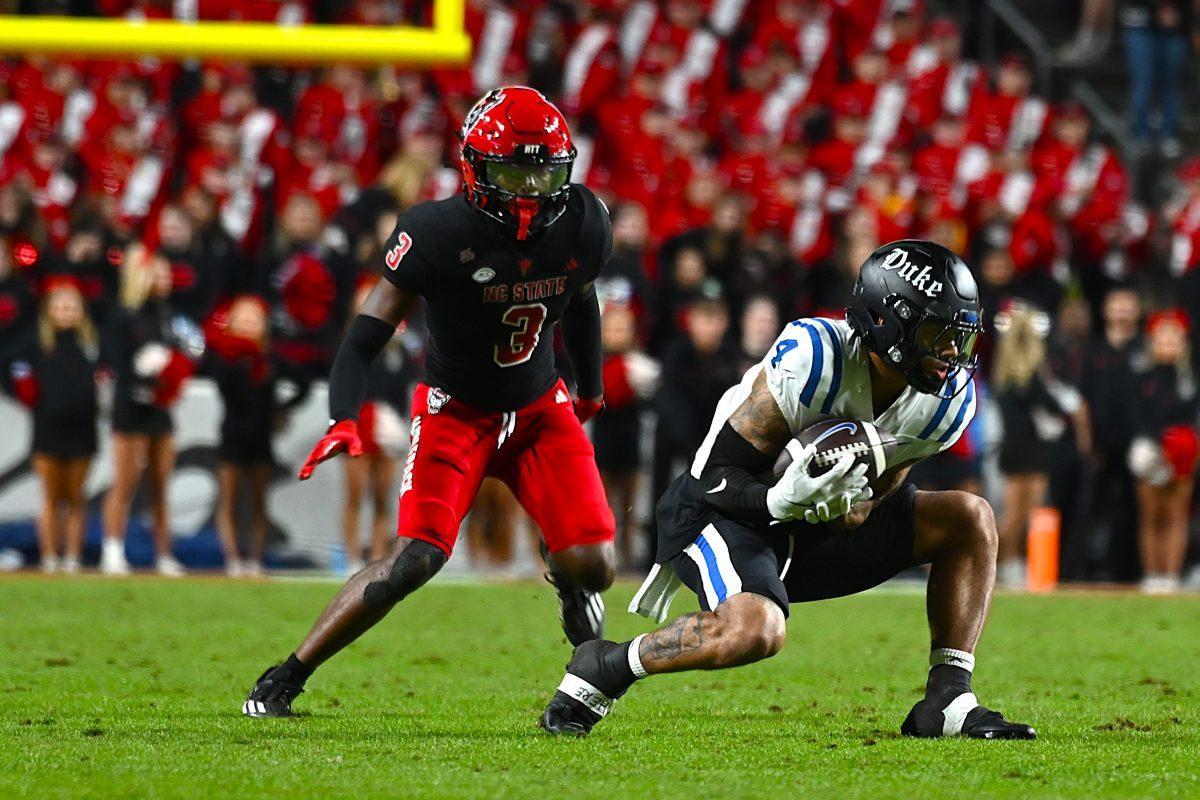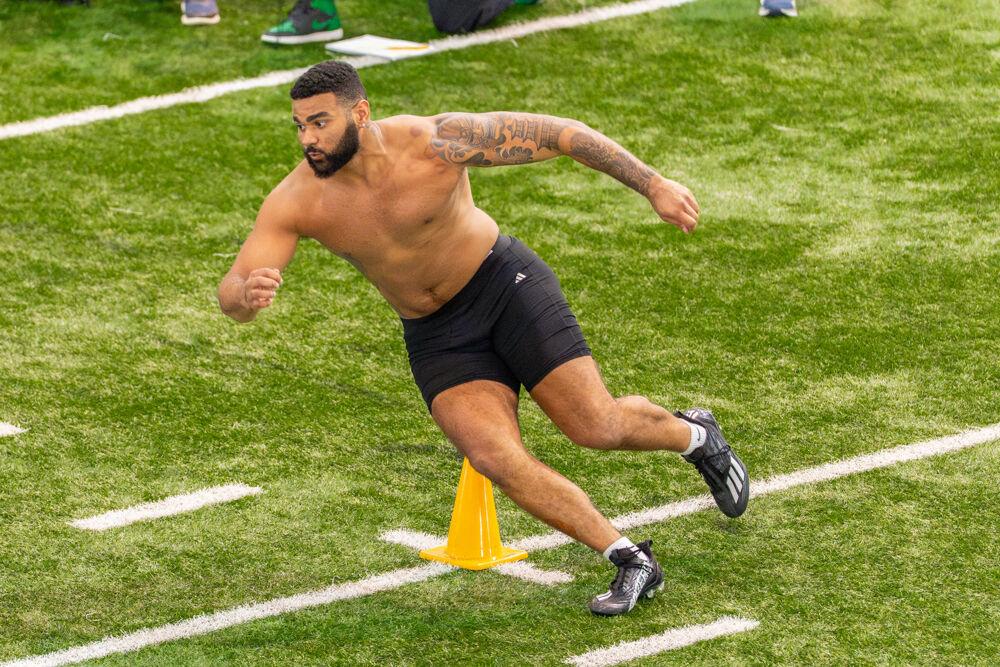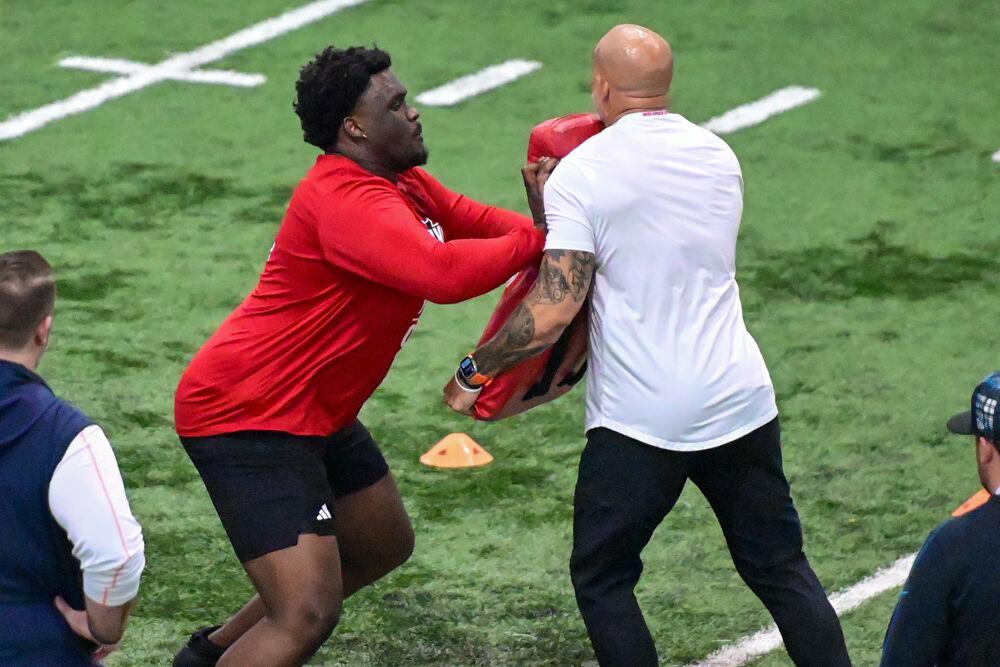Every athlete’s career has to come to an end, and that was the case for NC State offensive line coach John Garrison in 2004 after he was released by the Tampa Bay Buccaneers. Garrison was a standout center for two years at Nebraska, earning All-Big 12 recognition twice, and after a short NFL career, knew it was time to call it quits.
“The hardest part for me was knowing that I was no longer going to be in the locker room anymore,” Garrison said. “No longer gonna be around the guys. So, obviously the next step for me [was] if you can’t play the game anymore, you’ve got to coach it.”
Garrison’s coaching career began in his home town at Blue Springs High School in Missouri before Bo Pelini brought him on as an intern at Nebraska in 2008. In 2013, Garrison became the team’s offensive line coach, and Ameer Abdullah put up back-to-back 1,500 yard seasons after he was hired.
Leaving Nebraska, Garrison coached at UNLV and FAU before coming to Raleigh to replace Dwayne Ledford in 2019. After living in Lincoln, Nebraska, Las Vegas and Boca Raton, Florida, Raleigh stood out to him. Garrison, who has a wife and four children, said his family would love to settle down in North Carolina.
“Raleigh just feels like home to us. We love the community; we love the area,” Garrison said. “Even when we lived in Las Vegas, we would visit here at least twice a year… This is kind of the place we always talked about. When we do retire, when we do finally settle down, this would be the place to do it.”
Pursuing a life coaching college football is a commitment to developing young men. The first part of the equation is building trust, which usually happens as coaches begin the recruitment process with high school players. For Garrison, though, his start at NC State was taking on another coach’s handpicked unit. Just as he had to do at FAU and UNLV, he focused on getting to know his players.
“Relationships take time. They’re just not something that happens overnight,” Garrison said. “There’s an adjustment. The first thing they want to know is ‘Does this guy care about me? Does he know what he’s talking about?’ And all of those things take time. I think if you ask any of my guys, they know that I’ve got their back 100%. I’ve had success at the places I’ve been at, and the direction we’re going in is pretty darn exciting.”
It was important, in particular, for Garrison to become close with his inherited center Grant Gibson, then a redshirt sophomore who converted from defensive line to offensive line and was set to take over for Rimington Trophy winner Garrett Bradbury. The center is the quarterback of the offensive line, and as Gibson learned the position, he constantly touched base with his position coach.
“I definitely think that we have a strong bond,” Gibson said. “We meet almost every day just going over tape. I got to know him. I got to know his kids well. We definitely, over this past year, have started to click well, just talking with him and meeting with him. He’s a great guy and a great coach.”
In his first year, Garrison said the team didn’t have the season he wanted, and neither did his unit live up to his expectations, but there were improvements that instilled some confidence. As the 2019 season came to a close and the offseason began preparation for 2020, the team only got in a few spring practices before the outbreak of COVID-19 caused the student-athletes to be sent home. The NCAA also instituted a dead period for recruiting, which forbade face-to-face interaction with recruits. While coaches are doing what they can via internet meetings, the new normal has given Garrison more family time as he isn’t on the road.
“I hated being away from the players,” Garrison said. “But then, we’ve ate more family dinners together and spent more time together as a family. We pray together more, so there’s a lot of blessings that have come out of this and we are healthy and very fortunate.”
As the NCAA Division I Council approved a six-week ramp-up for the season this fall, NC State’s players will be practicing again sometime mid-July. Garrison is excited to have them back provided they follow safety guidelines. Having football back is huge, not just because of his love for the game, but also his love of the players.
“That’s why I coach. My ‘why’ is to watch them have success, watch them do it collectively as a group,” Garrison said. “That locker room after the game, man, there’s no better feeling when you win. And it’s tough when you lose. But that’s part of the reason why we do it. The highs and lows of winning and losing and the battle back after defeat, and the victory, you know, and the sense of victory and seeing it all come together is why I do it.”


